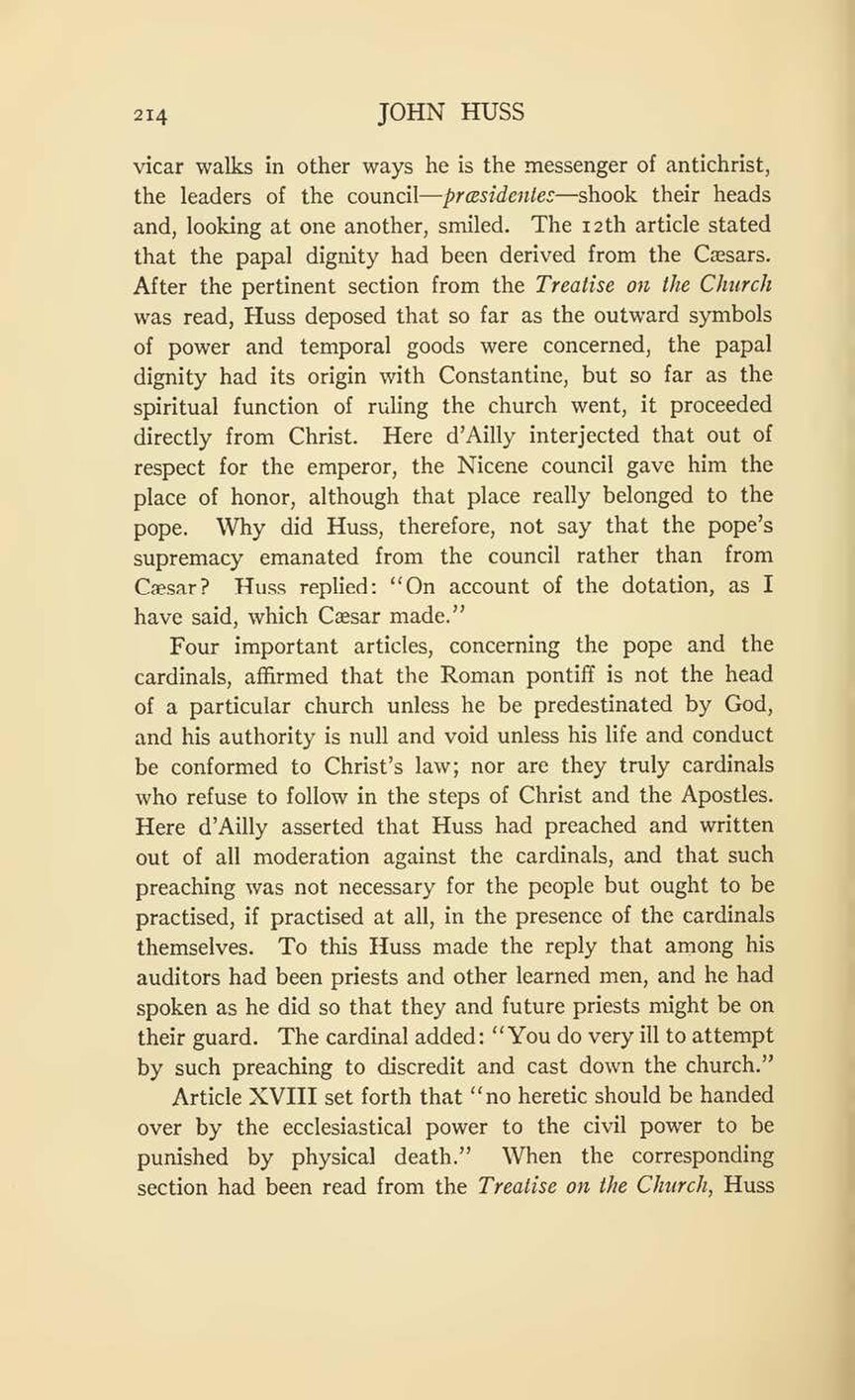vicar walks in other ways he is the messenger of antichrist, the leaders of the council—præsidentes—shook their heads and, looking at one another, smiled. The 12th article stated that the papal dignity had been derived from the Cæsars. After the pertinent section from the Treatise on the Church was read, Huss deposed that so far as the outward symbols of power and temporal goods were concerned, the papal dignity had its origin with Constantine, but so far as the spiritual function of ruling the church went, it proceeded directly from Christ. Here d’Ailly interjected that out of respect for the emperor, the Nicene council gave him the place of honor, although that place really belonged to the pope. Why did Huss, therefore, not say that the pope’s supremacy emanated from the council rather than from Cæsar? Huss replied: “On account of the dotation, as I have said, which Cæsar made.”
Four important articles, concerning the pope and the cardinals, affirmed that the Roman pontiff is not the head of a particular church unless he be predestinated by God, and his authority is null and void unless his life and conduct be conformed to Christ’s law; nor are they truly cardinals who refuse to follow in the steps of Christ and the Apostles. Here d’Ailly asserted that Huss had preached and written out of all moderation against the cardinals, and that such preaching was not necessary for the people but ought to be practised, if practised at all, in the presence of the cardinals themselves. To this Huss made the reply that among his auditors had been priests and other learned men, and he had spoken as he did so that they and future priests might be on their guard. The cardinal added: “You do very ill to attempt by such preaching to discredit and cast down the church.”
Article XVIII set forth that “no heretic should be handed over by the ecclesiastical power to the civil power to be punished by physical death.” When the corresponding section had been read from the Treatise on the Church, Huss
